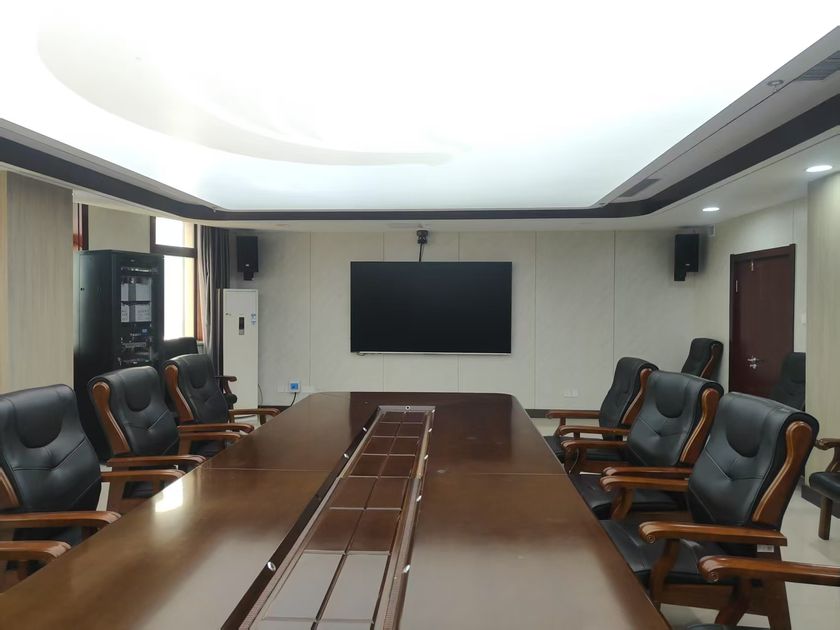- "You can't be like the Exxon Valdez, you have to be more like a speed boat."
- The proclamation is apt for just about any business, but it resonated particularly well with members of David Nour's audience at the inaugural InfoComm AV Executive Conference (AVEC) last week. In an industry particularly susceptible to the whims of technological progress, it's probably a good idea to lift anchor and tighten your life jacket for a wild ride.
- Tortured boating metaphors aside, agility was the buzzword du jour at AVEC, held September 10-12 at the Ritz Carlton in Amelia Island, Florida. Leading the conference through a series of workshop-style sessions complete with homework assignments, Nour declared the "New Norm" in business transactions is centered on relationships built on "solutions" and maintained via various "pull" marketing schemes and social media.
- In order to adapt a business to the turbulence ahead, "You need to crystalize where you are going in a way that is easy to communicate and also defend," he emphasized. In today's image and perception-based social media culture, "70 percent of your audience doesn't believe your marketing and advertising, and 70 percent of your target audience does most of their due diligence before talking to you."
- Looking ahead to AV's future requires a quick review of the past. Five years ago, we were talking about developing relationships with architects to guarantee early entry into the design phase. Two years ago, we said the IT executive was our customer. Now our customer is any Google user searching for something we sell.
- "How do you engage a prospect you don't know is in the market for your products and services?" Nour challenged.
- The answer is of course multi-faceted, and architects and IT professionals are still a big part of the equation. But integrator and consultant attendees at AVEC need to ask themselves how they will adjust their sales approach away from price negotiation and hardware specs toward "solving fundamental business problems" for the client, Nour suggested. Don't walk in there and say you have a box to sell, but ask instead what problems are inhibiting business growth for your customer.
- Asked casually at lunch what other fundamental business problems AV can solve beyond an increase in efficiency, InfoComm CEO David Labuskes had a definite answer: "Enterprise-wide strategies for unified communications." Indeed, the growth potential within unified communications would be a boon to both AV businesses and clients alike. There's no stopping the BYOD phenomenon, so why not suggest that you have a way to connect everyone and end the chaos.
- There to provide the tools and understanding necessary for operating within Nour's New Norm were Les McKeown, who elucidated for the audience the phases of growth inherent to every business in his "Predictable Success" session, and Nhat Pham, who provided clues on how to navigate the whole "digital footprint" thing.
- McKeown's delineations between growth and turbulent phases in business and his theories about how various personality types within an enterprise react and behave in each phase were truly enlightening. The entrepreneurs in the AVEC audience found much personal connection with each phase of development he detailed, as well an awareness of how habits formed early on in the history of a company either inhibit or drive growth over the long-term.
- "The early struggle phase is when we build the myths and legends of a business," McKeown observed, "and these become engrained as performance expectations. They become the default ways we think that a business succeeds."
- The picture McKeown developed was one of growth phases interspersed with hurdles that triggered either an evolution to the next phase or a return to a previous mode of operations which was effective for a particular size or style of enterprise. To the other extreme, the arc toward failure was interspersed with these periods of success, which makes the plummet off the cliff a surprise to most.
- It was an effective session, and for the remainder of the conference and even on the shuttle to the airport on the last day, attendees were categorizing themselves and their co-workers, customers, and businesses according to McKeown's scheme. It's a model that works very well, and I suspect that AVEC attendees will refer often to the phases and types within Predictable Success in everyday business and life transactions.
- Enthusiasm about InfoComm's newest event was apparent during the "Homework Express" session at the end of the first day. As with other events offering roundtable breakouts, ideas seemed to take on more concrete form and the exchange of information among peers proved beneficial. I was a part of a really great group comprised of companies serving a range of markets, and it was evident that we all had a lot to learn from each other.
- It was a welcome opportunity to look at business from the outside and compare notes with other executives in similar predicaments and patterns. "People in the AV industry, whether they're integrators, consultants, manufacturers, or otherwise, can get caught up in the hamster wheel of keeping a business going," noted Julian Phillips, vice president of Whitlock, and InfoComm board member, and a member of the AVEC Conference Committee. "There is demand there, and we're racing along trying to pay the bills, probably delaying the next horizon. But every business owner or leader needs to spend more time doing leadership activities. Leadership is about tomorrow. This event was designed to get executives to think about tomorrow. What do I need to change, and how quickly does that change need to happen?"


